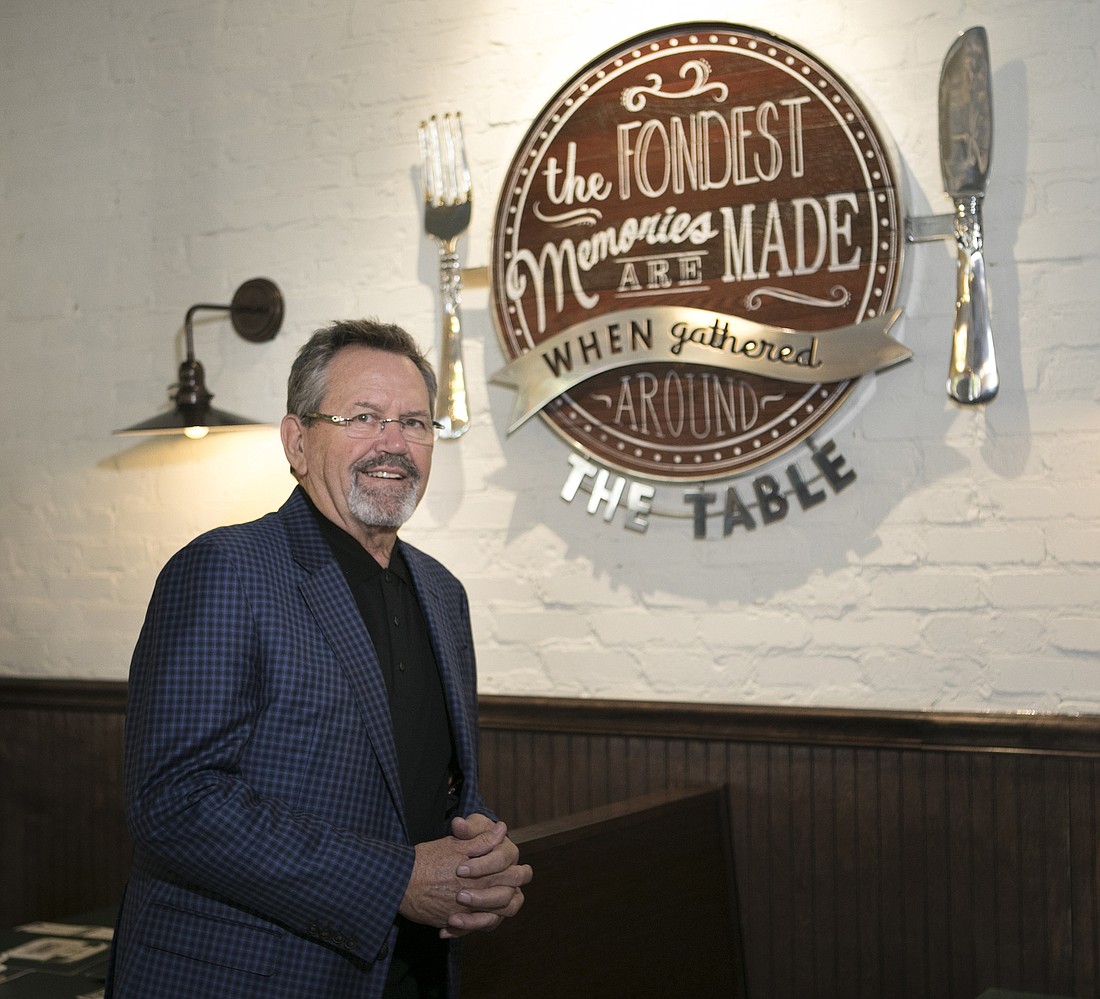- December 25, 2024
-
-
Loading

Loading

Metro Diner buys eggs by the tractor trailer load.
Since eggs reached an all-time high price, that presented some challenges for the Tampa-based restaurant chain this year, says Metro Diner Co-chairman Hugh Connerty Jr.
During baking seasons, particularly around Christmas and Easter, egg prices can triple, he says. The same thing happens with bacon in the summertime. When it’s grilling season, the price of bacon spikes. Plus, Connerty points to bacon’s resurgence in the culinary world as a reason the price went up even more this past summer. “You can’t just pass that along to consumers,” he says. “We try to look at it on an annualized basis because it goes through peaks and valleys.”
Food costs were one of the challenges — along with a tight labor market — the fast-growing comfort food chain faced this year. Aside from challenges, it was a good year for Metro Diner, opening more stores and looking ahead to continued growth in 2019. (On the flip side, Metro shuttered one location in Sarasota and another one in Naples.)
The restaurant chain is controlled by ConSul Partners, a group that includes industry veterans Connerty, Chris Sullivan and Carl Sahlsten. Connerty was previously president of Outback Steakhouse International, an original franchisee of Outback Steakhouse Inc., among other industry roles, while Sullivan co-founded Outback.
Connerty says one of Metro Diner’s bumps in the road in 2018 was the October closing of its location at Westfield Siesta Key in Sarasota. “We just think that was a real estate mistake,” Connerty says. “We didn’t have any visibility to the street.”
In 2018, Metro Diner closed two diners and opened 26, for a net total of 24 new locations. “When you have growth the way we’re growing ... you’ve got to be able to say, ‘This isn’t working,’” Connerty says of the decision to close specific locations.
Often, he says people devote an inordinate amount of resources fixing mistakes, which is a mistake. “Every business is going to have hiccups,” he says. “You’re much better off to continue to focus the resources in areas that are working.”
One of those areas is Metro Diner’s location on Lockwood Ridge Road in Sarasota. That restaurant opened in March, and Connerty calls it a healthy diner.
Another key challenge this year was staffing. “The labor market has been very, very tight, especially in markets like Florida,” he says.
“Dollars are just dollars. There isn’t a lot of personality to them.” — Hugh Connerty Jr., co-chairman, Metro Diner
A primary reason Metro Diner closed a location in Naples, Connerty says, was just that: not having enough employees. After Hurricane Irma, he says it was estimated that 20% to 25% of hourly employees in the restaurant industry never came back to Naples. That meant big competition between area restaurants, with offers of high wages for kitchen staff. “We ended up having to send people constantly to Naples,” Connerty says, even putting up workers in hotels to help make up for the shortage.
Staffing will continue to be an issue in 2019, he says, “as long as the U.S. economy is humming along the way it is.”
To help combat the labor shortage and retain employees, Metro Diner aims to make employees feel more included. One example? Managing partners now call new employees the night before they start to tell them they’re looking forward to having them come in the next day. “Money isn’t the No. 1 thing for people about their jobs,” Connerty says. “They want to be paid fairly, but things that are far more important are the work environment.” That includes having fun, liking colleagues and feeling appreciated and recognized, he says. “Dollars are just dollars. There isn’t a lot of personality to them.”
At the end of 2018, Metro Diner will be up to 65 locations. Next year, it plans to open 22 more restaurants, eight in the first quarter of 2019. One of the new locations, under development in Bradenton, an area Connerty calls "a very healthy restaurant market,” is a 3,840-square-foot former Dollar General store. “Next year’s growth will be exclusively in markets we’re already in,” he says. “We’re not going to look at new territories, probably for the next two years at least, maybe three.”
The chain’s focus will continue to be on the Southeast U.S. and Eastern Seaboard, where Connerty says opportunities remain. “Things are going well, and we’re very pleased with the direction (the chain) is headed,” Connerty says. “We’re excited about another year ahead of us that has growth.”